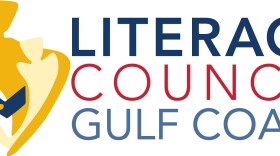TALLAHASSEE — Saying the country is at a “deeply, deeply disturbing” juncture, Bacardi Jackson — a veteran litigator whose civil-rights advocacy is literally in her genes — is taking the mantle as executive director of the American Civil Liberties Union of Florida.

Jackson started the job Monday amid a growing number of challenges to laws passed by the Republican-controlled Florida Legislature and signed by Gov. Ron DeSantis.
During a wide-ranging interview with The News Service of Florida, Jackson said she views her new position as an opening to spur action at a critical juncture in the history of the state and the nation.
“In my lifetime, I have never seen the barrage of repressive legislation and laws that have passed across our nation, and sadly many of those have been spawned right here in our state. So it is an opportunity to really focus and do something about securing freedom for our state and for my children and everyone's children,” Jackson said.
Jackson’s activism is rooted in the Deep South, where her parents were civil-rights leaders, according to a cover letter submitted to the ACLU’s hiring team in January when Jackson was applying for the job.
Jackson’s paternal grandfather, a sharecropper, built one of Mississippi’s first “substantive” schools for Black children, according to the cover letter.
Her father was a strategist behind the voting-rights march from Selma, Ala., to Montgomery, Ala., which led to passage of the Voting Rights Act of 1965.
Her mother, the granddaughter of Jewish immigrants who escaped persecution in Russia, was a young anti-apartheid activist who, among other things, fought for hot lunches for school children in Memphis.
And Jackson’s stepfather was a member of the “Memphis Mobilizers,” a group that helped lead efforts to integrate public schools in the city.
Jackson pointed to her family’s history to illustrate what she characterized as disturbing developments in Florida, such as a 2022 law restricting the way race can be taught in schools.
“There was a point in our history where teaching Black children to read was punishable by death. And if we don't understand that history, we don't know how valuable that right is and how urgent it is to protect it when we see our public schools being defunded and decimated and destabilized intentionally.”Bacardi Jackson
“There was a point in our history where teaching Black children to read was punishable by death. And if we don't understand that history, we don't know how valuable that right is and how urgent it is to protect it when we see our public schools being defunded and decimated and destabilized intentionally,” she said. “I am literally three generations from slavery and you already want to erase that history. That’s problematic.”
Jackson earned a bachelor’s degree in political science from Stanford University and graduated from Yale Law School. She began her legal career in private practice and spent the past four years at the Southern Poverty Legal Center in Florida, where she was deputy legal director for the Democracy: Education & Youth litigation team.
Jackson succeeds Howard Simon, who served as the ACLU of Florida’s executive director for more than two decades before retiring in 2018 and returning as interim director in August 2023.
Simon called Jackson an “exceptionally well-qualified” hire who comes on board at “an especially dangerous time for civil rights and civil liberties” in the state.
“Never in the decades that I have lived in the Sunshine State has there been a governor and legislature so intent on rolling back every element of progress that has been made for women’s rights, First Amendment rights, voting rights, racial equality, LGBTQ+ rights, freedom from government-sponsored religion, and so many other constitutional principles,” Simon said. “That is why I, and the members of our staff, are so thrilled that Bacardi Jackson has been appointed as our new executive director. She is exceptionally well-qualified to lead our talented staff during this critical time in the hard work they have been doing to protect the rights of the people of Florida from assault by their own government.”
Jackson’s personal history — she said she grew up in “abject poverty” and experienced hunger and homelessness — as well as her legal career will inform her approach to the leadership role, she said.
“I'm deeply curious and interested in how laws impact different people. And you know, one of the debates and discussions that I think is kind of in the ether these days is, what is the mission and what does it mean to have civil rights and civil liberties, and whose civil rights and civil liberties, and what happens when they conflict with each other, because everybody believes that they are fighting for their freedoms and rights, right?” Jackson told the News Service.
The ACLU has notched a number of legal victories in challenges to laws passed since DeSantis was first elected governor in 2018. As examples, judges have blocked laws aimed at restricting public protests, limiting how race-related concepts can be taught in colleges and universities and barring non-citizens from participating in voter-registration efforts. The DeSantis administration has appealed those decisions, and the ACLU also is involved in challenges to other state laws.
“The story of racial justice in this country is a powerful story of reckoning with ourselves. And here in 2024, I should not be fighting my parents’ battles, but I am. And at the core of those battles is an insidious continuation of racist propaganda that is the undercurrent of what we are hearing,” Jackson said.
Jackson said she plans to kick-start her new job by exploring areas “where no one is protecting our freedoms.”
“It is really important to have conversations across our state to understand where people are suffering, where our laws are causing them to suffer and figure out what we might be able to do about it,” said Jackson, who has lived in Florida for 18 years. “It can’t just be winning litigation. That would be nice. But with the next election, that can be reversed.”
Jackson also said she wants to launch a “broader campaign” that includes community engagement and activism.
For now, the mother of three teenagers is concerned about what she said is a sense of complacency. When asked, Jackson said she is most fearful of “the decimation of democracy,” which she called “deeply, deeply disturbing.”
“For me, this moment in history is a moment that demands a very loud, active, verbal response. It is a moment where we have got to figure out how to figure out how to translate, for everyone — and particularly for the young people who are inheriting the mess we’re making — the urgency of now,” she said.
Jackson said she wants to appeal to young people to get involved with the ACLU.
“We are excited about all the ways that I believe we can expand our impact. I want to just offer that invitation, particularly to young people who are inheriting all of these decisions and the consequences of them,” she said.




